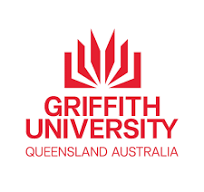
Bachelor of Electrical and Electronic Engineering (Honours)


Overview
4 YEARS
YES
AU $41,500 PER YEAR
FEB, JULY, NOV
This is your chance to have an impact on the way the world works. You could have the opportunity to make your mark on major global systems and infrastructure or be at the forefront of localised urban projects. When you choose this degree, you will be engineering from day one.
In your first year, you will develop a strong foundation in basic science and engineering principles. You will study a range of engineering areas, letting you decide which area interests you the most. We're strong believers in `learning by doing', so this degree has a strong practical focus. You will learn from teachers who are passionate about engineering and the difference it makes in the world, so you will get to experience their energy in your studies.
Industry and expert connections:
In your second year, you will choose your preferred major so you can focus on the area you feel passionate about. Learning from industry kicks into another gear, and you will participate in genuine engineering projects. You will also hear from the very best, with guest lecturers explaining their vision and the results of significant projects. You will have direct access to them for questions and advice as part of our smaller more personalised experience.
Entering your final year, you will take your skills and work with one of our industry partners here or overseas, undertaking a trimester-long project through our capstone Industry Affiliates Program.
Graduate outcomes:
As a graduate you will possess the hands-on skills that employers tell us they are seeking. Plus, because this is an accredited degree, you will have met Engineers Australia stage one competencies. This degree is also internationally recognised, which means you can put your skills into practice right around the world.
Program accreditation:
In Australia, professional accreditation of entry to practice engineering programs is the responsibility of Engineers Australia and is normally carried out on a five-yearly cycle. Griffith University underwent this review in August 2015.
Accreditation ensures academic institutions consistently meet national and international benchmarks and engineering graduates of an accredited program are assured membership with Engineers Australia at the relevant career grade and enjoy reciprocal privileges by equivalent professional bodies overseas.
Countries such as the USA, United Kingdom, Hong Kong (SAR), New Zealand, Canada, South Africa and others that are co-signatories to international agreements on joint recognition offer international recognition.
The Washington Accord, the Sydney Accord and the Dublin Accord recognise the substantial equivalence of accreditation systems and accredited programs across international boundaries at the Professional Engineer, Engineering Technologist and Engineering Associate levels respectively. Please refer to the International Engineering Alliance (IEA) website for more details.
Attendance information:
The Bachelor of Engineering (Honours) program is offered full-time at the Gold Coast and Nathan campuses and delivery is via internal mode (on-campus) with a Trimester 1 and 2 intake only.
This program includes compulsory study in Trimester 3. Students who commence in Trimester 2 should note that you will be required to study in Trimester 3 for the first year of the program.
If you are an International student on a student visa, you must ensure that you enrol in a way that will allow you to complete your enrolment within the expected program duration as stated on your Confirmation of Enrolment (CoE).
Electrical and Electronic Engineering (Gold Coast):
Electrical and electronic engineers work with senior administrators, civil and mechanical engineers, computer scientists and various workers in the business, building and construction industries. The essential nature of an electrical engineer's role places them in the position to influence the development and application of new and emerging technologies. This includes the fast-growing energy industry. You could work to incorporate locally generated renewable energy resources into our more conventional supply systems, helping to reduce costs, save energy and cut greenhouse gas emissions.
Inquire Now
Entry Requirements
Qualification: Nepalese Proficiency Certificate
Your entry requirements include: Grade average of 97 in the final year results
Qualification: School Leaving Certificate Examination awarded by National Examinations Board
Your entry requirements include: Grade average of 3.9 in the final year results
Pathways
Post-secondary qualifications are required for entry into this program.
Successful completion of one year of study at a recognised tertiary or higher education institution is required in addition to the completion of high school studies.
English language requirements apply to International applicants and other applicants whose previous study was undertaken in a language other than English. The minimum English language requirements for such applicants for entry to this program are as follows:
A minimum overall band score of 6.5 on IELTS (Academic) with no sub-score of less than 6.0
OR a minimum score of 575 on TOEFL
OR an internet-based (iBT) TOEFL score of 79 (no sub-score less than 19)
OR no score less than 3+ in each skill of the ISLPR (conducted by ISLPR Language Services only)
OR a minimum overall score of 176 (no score less than 169) on C1 Advanced (formerly Cambridge Certificate in Advanced English) or C2 Proficiency (formerly Cambridge Certificate of Proficiency in English)
OR an overall score of 58 in the Pearson Test of English (Academic) with no score less than 50.
Fees
Tuition fees
*An International student pays tuition fees.
*Students are liable for tuition fees for the courses they are enrolled in as at the census date.
*The tuition fee for students who commence their program prior to 2014 is charged according to the approved program fee for the trimester in which the student commenced the program.
FEE (INDICATIVE): AU $41,500 per year
Scholarships
https://www.griffith.edu.au/international/scholarships-finance/scholarships/vice-chancellors-international-scholarship
Popular Courses
Find your perfect course
Head Office
Kamaladi, Kathmandu
Tel: +977 14542781, 9845566225
E-mail: info@landmarkedu.com
Sydney office
46 Macquarie Street,
Parramatta, NSW
Tel: +61 415 122 814
Branch office
Tel: 056-590825
Tel: 021-590828
Tel: 977-71-591694
